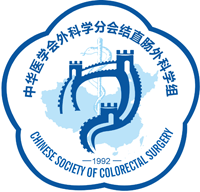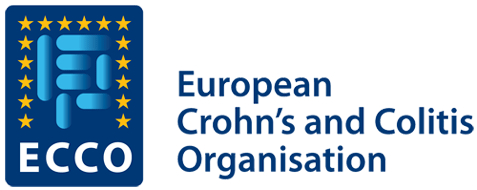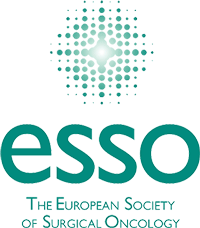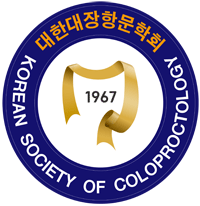 Delegates to the annual ESCP Meeting this year will have the opportunity to discover the latest knowledge and techniques in dissecting lymphatic metastases of the para-aortic and lateral pelvic regions. This approach can also help prevent a number of common local recurrences, as well as improve survival in rectal cancer patients.
Delegates to the annual ESCP Meeting this year will have the opportunity to discover the latest knowledge and techniques in dissecting lymphatic metastases of the para-aortic and lateral pelvic regions. This approach can also help prevent a number of common local recurrences, as well as improve survival in rectal cancer patients.
Celebrated colon and rectal surgeon professor Petr Tsarkov will present a keynote lecture on 'Management of para-aortic and lateral pelvic lymph nodes in colorectal cancer' on Thursday 27 September. He will take an in-depth look at the techniques he has been using for 20 years to successfully perform extended lymph node dissection in these areas.
Petr Tsarkov is director of the Clinic of Coloproctology and Minimally Invasive Surgery at Sechenov First Moscow State Medical University. He holds patents for a variety of surgical techniques including lateral pelvic lymph node dissection and is a recipient of the Russian Federation Government award in recognition of his contribution to the innovations in low rectal cancer treatment.
For many years Tsarkov has been a recognised expert in extensive surgery for colorectal cancer, especially extended lymph node dissection. His personal experience with lateral lymph node dissection for rectal cancer exceeds 200 procedures.
Background to the techniques
In Tsarkov’s view, the perception of para-aortic and lateral lymph node dissection as an exclusively eastern invention is not completely accurate. In fact, these procedures were first proposed by surgeons in the United States about 70 years ago, but afterwards became a subject of unspoken taboo in the Western colorectal surgery world. Two factors which influenced this were the strengthening influence of radiotherapy as well as increasingly noted major neurological deficiencies after extensive surgery. As such, the popularity of the approach died down in the West.
Conversely, in Japan significant efforts were taken to improve the surgical technique to decrease the side effects and enhance oncological benefits, and great strides have been made.
Understand the key differences
These days, there is an increasing interest of Western colorectal surgeons to extended lymph node dissection in colorectal cancer.
For advanced gynaecological and urological cancers, lateral pelvic lymph node dissection is a standardized procedure. For that reason, some European colorectal surgeons refer to gynaecologists and urologists to be trained to perform this operation. However, there are some key differences between the pelvic and lower rectal areas which need to be understood.
Professor Petr Tsarkov will highlight the differences between lateral lymph node dissection performed for low rectal cancer and other pelvic cancers. He will share his key tips and tricks of open, laparoscopic and robotic techniques.
A review of the latest research
Whereas para-aortic lymph node dissection in rectal cancer treatment still lacks strong evidence, Tsarkov will share the findings from a recent Japanese randomized study [JCG01212] that proved an almost two-times reduction of local recurrence rate in low rectal cancer patients who had prophylactic lateral lymph node dissection compared to those who had not. In his view this indicates that the procedure shows promising signs of becoming a useful mainstream tool. Tsarkov will also present the 15-year follow-up results of a Russian randomized single-centre trial with similar conclusions to show the benefit of the procedure in western low rectal cancer patients.
Learn from the screen
“Previously in the era of open surgery, extended lymph node dissection was difficult to teach because of limited surgical view in a very narrow space. Nowadays, laparoscopic and robotic approaches allow us to see detailed anatomy, and so learn to perform these procedures ‘from the screen’” said Tsarkov.
Tsarkov hopes that by applying practices which surgeons in Japan and Korea have been perfecting for decades, albeit in a different section of the colorectal region, we will start to see remarkable improvements in patient survival rates and quality of life.
“But to get to that point, we need to see much more surgeons trained in, testing, and practicing, these techniques.” he added.
Connect ahead of session
Tsarkov is keen to connect with surgeons who are interested in training further in these techniques because he believes there is still much to learn about their effectiveness and further potential for improved patient survival outcomes. He will use his keynote session to address how surgeons can improve their knowledge in this regard and learn the techniques he will discuss.
Tsarkov is an active Twitter user and will happily connect with other surgeons online to discuss this and any other topic related to colorectal surgery – you can connect with him @TsarkovPetr ahead of, and following, the Annual Meeting.
Book your place at the 13th Scientific and Annual meeting of ESCP in Nice here
Keynote Lecture: Management of para-aortic and lateral pelvic lymph nodes in colorectal cancer - 11:25, Thursday 27 September 2018








